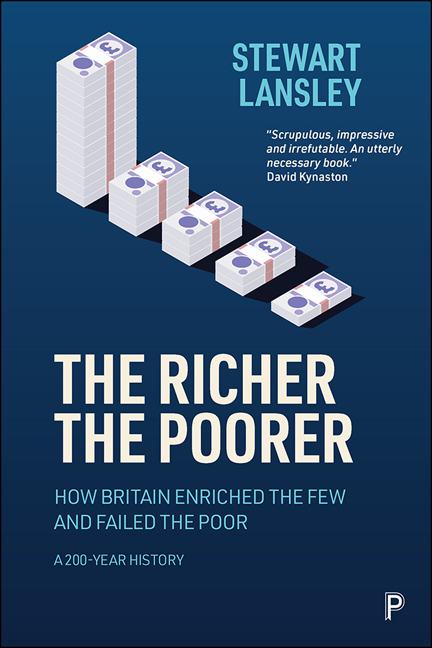Book contents
- Frontmatter
- Miscellaneous Frontmatter
- Dedication
- Epigraph
- Contents
- List of figures
- Preface and acknowledgements
- Introduction: Knighthoods for the rich, penalties for the poor
- PART I 1800–1939
- PART II 1940–59
- PART III 1960–79
- PART IV 1980–96
- PART V 1997–2010
- PART VI 2011–20
- Afterword: COVID-19 and ‘the polo season’
- Notes
- Index
11 - Consolidation or advance?
Published online by Cambridge University Press: 13 May 2022
- Frontmatter
- Miscellaneous Frontmatter
- Dedication
- Epigraph
- Contents
- List of figures
- Preface and acknowledgements
- Introduction: Knighthoods for the rich, penalties for the poor
- PART I 1800–1939
- PART II 1940–59
- PART III 1960–79
- PART IV 1980–96
- PART V 1997–2010
- PART VI 2011–20
- Afterword: COVID-19 and ‘the polo season’
- Notes
- Index
Summary
Labour had several items of unfinished business from the 1960s. One of them was inequality. Its 1974 manifesto called for ‘a fundamental and irreversible shift in the balance of power and wealth in favour of working people and their families and to eliminate poverty wherever it exists in Britain’. It was some promise. There were echoes here of the 1945 manifesto, which had challenged the way business elites acted like ‘totalitarian oligarchies within our democratic state’ without ‘any responsibility to the nation’.
For three decades, social democracy –and its European counterpart, Christian democracy –had been a powerful progressive political force. Living standards had risen and welfare states been built, if of varying strengths. In the UK, tax revenue had risen to nearly 40 per cent of national income by the mid-1970s compared with 8–10 per cent in the pre-1914 years. Labour was now proposing a further step along the social democratic path with a new and highly ambitious goal, to make further strides towards greater equality.
A doomed species?
Progress towards this goal had already been made. The post-war years had seen a further, if gentle, dilution of top fortunes that had begun as a trickle in earlier decades. Changing social values had also brought a check on expectations among the ‘old gang’. The earlier era, when huge fortunes could be made in commerce and business, were yet to be replaced by the voracious financial dealmaking that was to come not that much later. There were fewer examples of the pre-war displays of extravagance and the open flaunting of wealth. ‘Ostentation was becoming vulgar’, wrote Crosland in 1956. In 1963, at the Royal Variety Show, John Lennon asked people in the cheaper seats to clap and the rest to ‘rattle your jewellery’. The landed gentry continued to bemoan their plight. ‘The wealthy, especially those who had inherited their wealth, appeared to be a doomed species, scheduled for extinction’, declared the wealth historian William Rubinstein, a signed-up member of the laissez-faire fan club.
While in the nineteenth century the wealth boom at the top came with impoverishment at the bottom, many of the mechanisms that had been driving greater equality also brought lower rates of poverty, if a long way from its elimination.
- Type
- Chapter
- Information
- The Richer, the PoorerHow Britain Enriched the Few and Failed the Poor: A 200-Year History, pp. 98 - 104Publisher: Bristol University PressPrint publication year: 2021



